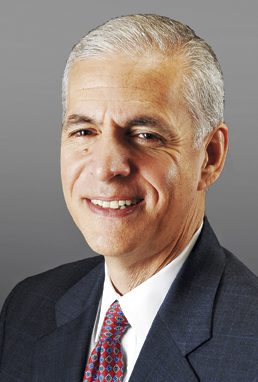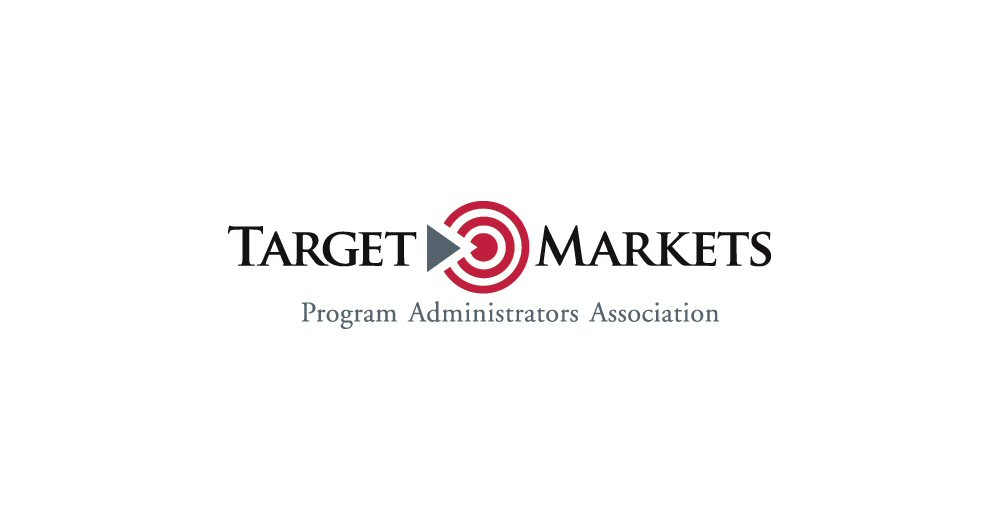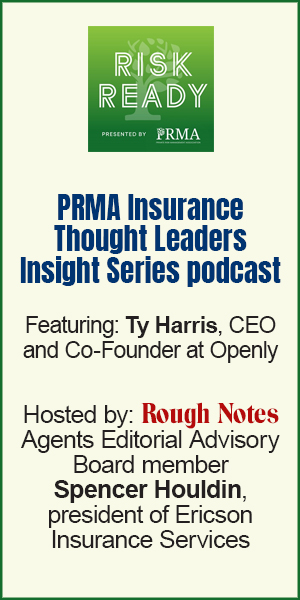PEOPLE, PROGRAMS AND PANDEMICS
Program business benefits accentuated in today’s disrupted world
By Ray Scotto
The Target Markets Program Administrators Association and program business in general entered 2020 riding high and with great expectations. The association’s 2019 October Summit in Scottsdale attracted close to 1,000 program business professionals who came together to explore program opportunities, solidify existing relationships, and form new partnerships for future business development.

—David Jordan
Chief Executive Officer
Breckenridge Insurance Group
The State of Program Business Study released at that event showed that this industry segment reached a new high of $40.5 billion in written premium, representing a 12% increase from the previous study in 2017. Most program administrators interviewed for that study stated that they planned to introduce new programs, and carriers indicated that the capacity to accommodate that growth would be available.
Registrations for the 2020 TMPAA Mid-Year Meeting in Tampa were up by more than 25% from the previous year when the world as we knew it profoundly changed.
Fast forward to the end of the second quarter, and just about every major insurance conference since the COVID-19 pandemic reached the U.S. has been canceled. An industry that thrives on personal contacts, handshakes, business dinners and networking functions was quickly forced to conduct business using myriad virtual platforms from home offices, each with its own learning curve.
The changes brought on by COVID-19, however, have shined a light on several important aspects of program business and the TMPAA—perhaps most notably the resilient nature of our members and the organization—that have proved invaluable for today’s demanding business environment.
Because of their expertise in the lines of business they write, program administrators are quick to adjust to a rapidly changing market, and this delivers a significant advantage to carriers that have invested in these partnerships. It also turns out that many relationships formed over years of networking at association events were not challenged by the need to use new platforms for communication.

—John Colis
President
Euclid Insurance Services
“This ability to produce an underwriting profit assumes even greater importance for a program insurer in today’s era when investment income is constrained and the focus must be on statutory results,” he adds. “Beyond under-writing prowess, PAs bring speed, flexibility and distribution to the equation that enable them to maneuver efficiently through a changing landscape.”
John Colis, president of Euclid Insurance Services, adds, “Carrier loss ratios are under pressure right now. Insurance capacity on many lines is being pulled back by carriers. Some carriers are exiting certain lines, and some are staying in but are reducing the limits they will write. At this stage in the market, the willingness of carriers to take on new lines of business is less than it was five years ago when everything was going well.” As a result, he says, program administrators must look harder for new carrier partners.

—Greg Massey
Head of Programs
Zurich North America
In the absence of traditional in-person connections to seek program capacity and the supports required to run a successful program, the association built a series of online capabilities, making these connections available to program veterans and those looking to develop or grow a new program. For example, the association’s new Program Incubator Membership, designed for agencies that are working toward meeting membership requirements, was a timely asset for those programs that are now confronting the impact of business shutdowns.
Education is especially valuable in today’s market. “These are challenging times indeed,” says Greg Massey, head of programs for Zurich North America. “Helping our customers understand and manage emerging and evolving risk is at the center of all that we do at Zurich. The coronavirus pandemic is an evolving risk that has affected businesses around the world. These businesses are trying their best to understand and navigate their risks. They are asking for strategic risk management solutions, which are more important today than ever before.

—Tyler Hamilton
First Vice President and Director of Program Development
Alliant Underwriting Solutions
“Zurich’s significant involvement with TMPAA has allowed us to quickly recognize evolving trends in the program space, provide solutions for our current program partners and connect with new administrators we also may be able to assist,” he adds. “The Zurich team has been able to seamlessly adapt to a virtual environment and continues to offer the programs segment needed capacity and relevant value-added services.”
It has become increasingly clear that waiting for an end to the COVID-19 pandemic to move forward with plans to start, grow or improve a program is not an option. “The process of launching a new program, or transitioning a program from one carrier to another, takes a considerable amount of time,” says Tyler Hamilton, first vice president and director of program development at Alliant Underwriting Solutions. “When the world emerges from COVID-19, program administrators will want the differentiated product offerings we are known for to be immediately available to our niche clientele.
“The challenges our economy has faced this year make clients even more likely to assign value to program administrators’ specialized approach to their business,” he adds. “Having a proactive approach is crucial. We do not want to be working on the solution as business begins to resume growth; we want it to be available and ready to deploy. This is why the TMPAA Virtual Summit Week in October is a must-attend event.”

—Stephen Leeret
Senior Vice President
Allied World Insurance Company
Stephen Leeret, senior vice president of Allied World Insurance Company, says, “There is no more important time than during a pandemic to have relationships with program administrators, whose close ties with retail producers and insureds facilitate critical communication between carriers and customers. Especially with so much uncertainty in the market, program administrators provide critical feedback, specialized resources to assess new risks, valuable insight into specific industry needs and help in developing appropriate product changes where needed.”
The TMPAA 2020 Summit Week virtual event will focus on presentations from industry thought leaders that address the challenges of the current business environment, provide updates on the state of program business, and explore solutions being employed by program pros. The ability to connect in person with decision makers from over 60 program markets has always been the centerpiece of TMPAA meetings, and these same connections will be available during the Summit Week virtual event next month.
With the realization that, at least for the foreseeable future, this will be how program business gets done, the expectation is that members will make the most of this opportunity. The focus of Summit Week will be to facilitate the maintenance of existing business relationships and provide the opportunity for new business incubation that will continue to propel this industry segment on its current trajectory of growth.
The author
Ray Scotto is executive director of Target Markets Program Administrators Association.






